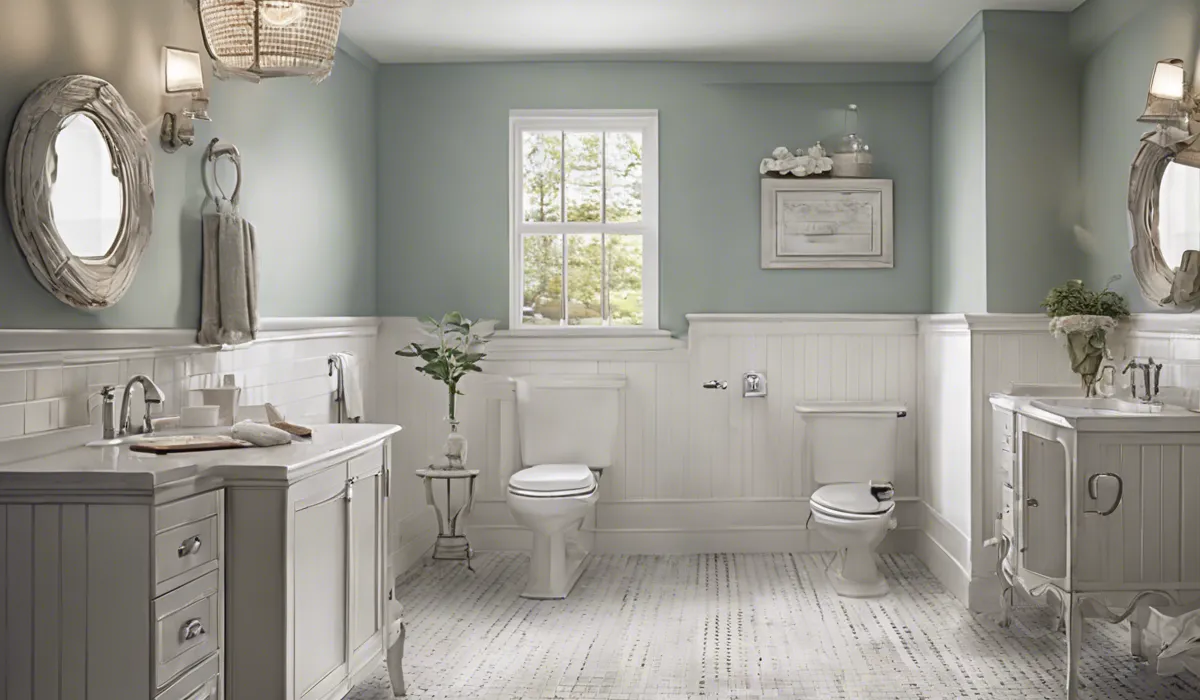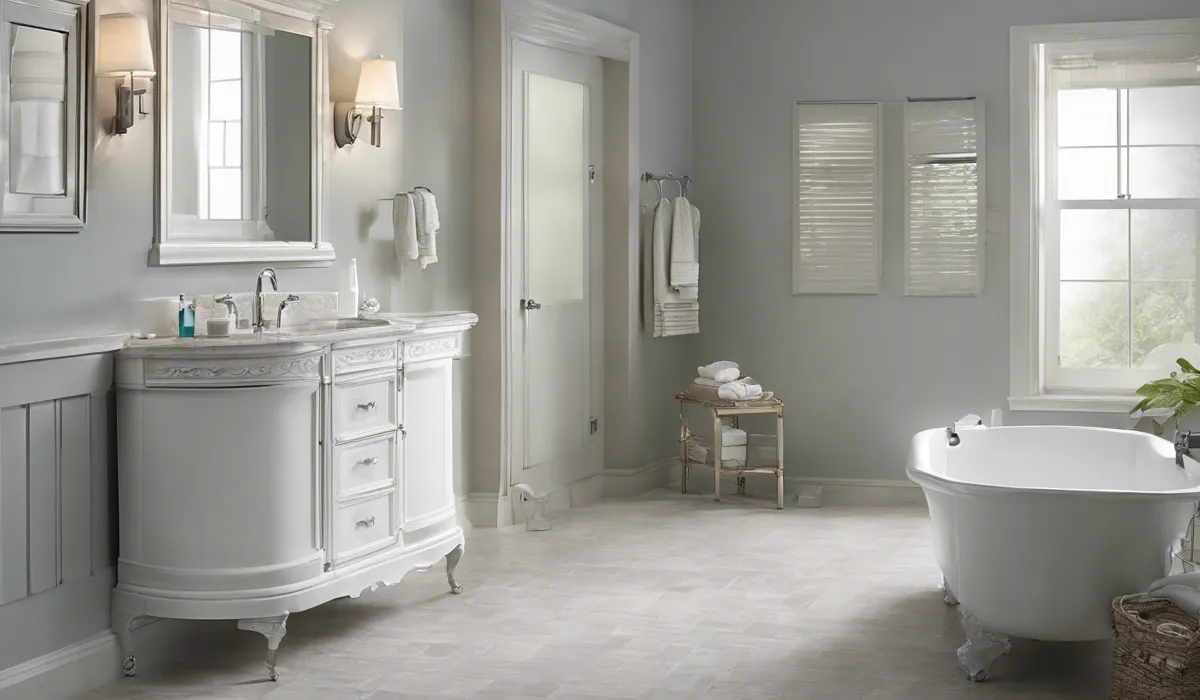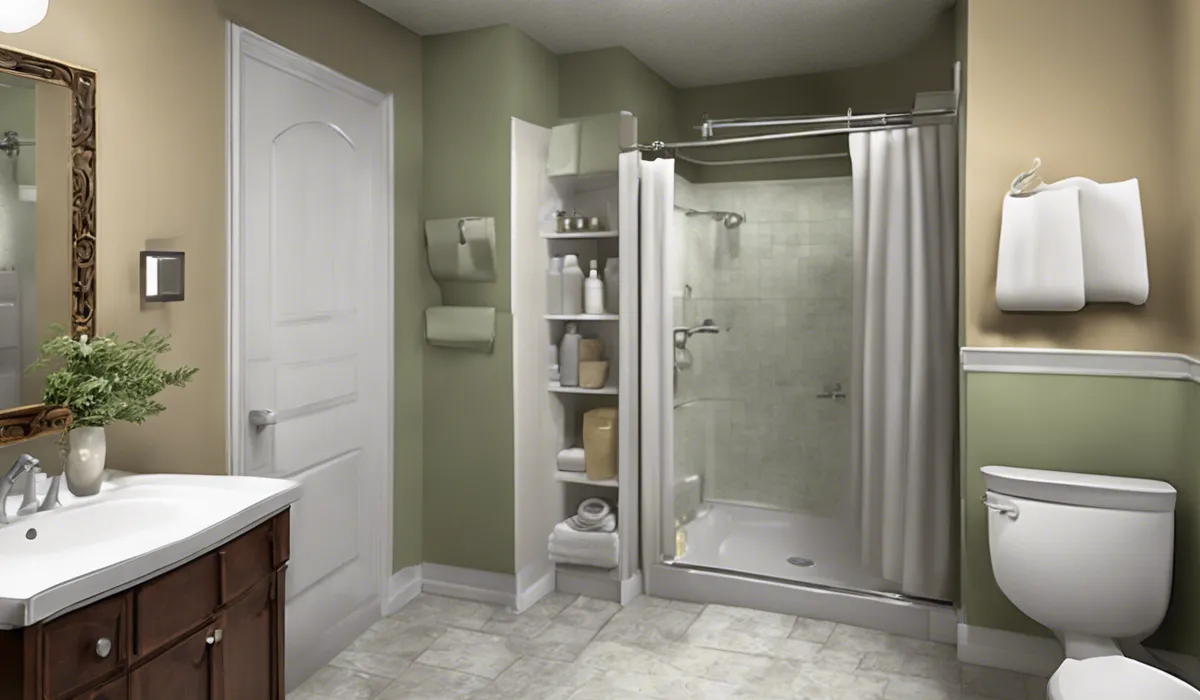Your bathroom smells like mildew likely due to moisture buildup, which encourages mold growth, especially in poorly ventilated areas. Frequent causes include damp towels, leaks, or stagnant water. Regular cleaning and improved airflow can mitigate the smell.
Causes of Mildew Smell in Bathrooms

Lack of Ventilation Leading to Moisture Build-up
One of the top reasons bathrooms develop a mildew smell is due to poor ventilation. Without proper airflow, moisture from showers and baths lingers in the air and on surfaces.
This damp environment creates the perfect breeding ground for mildew and mold. To prevent this, it’s essential to use an exhaust fan or open a window while showering and for a period afterward to help dry out the air.
Growth of Mold and Mildew on Damp Surfaces
Mold and mildew thrive in moist conditions, which are commonplace in bathrooms. Surfaces that remain damp, such as shower walls, curtains, and bath mats, can become hotspots for mildew.
Ensuring these areas dry quickly and thoroughly is key to preventing the musty smell associated with mildew.
Leaks in Plumbing Fixtures
Leaks from sinks, toilets, and pipes can go unnoticed until the smell of mildew alerts you to the problem.
These leaks provide a constant source of moisture that mildew needs to grow. Regularly checking for and repairing leaks is a crucial step in maintaining a fresh-smelling bathroom.
Infrequent Cleaning and Lingering Organic Material
A bathroom that isn’t cleaned regularly can accumulate organic materials like skin cells, hair, and soap scum.
These can feed the mildew and mold, leading to a stronger odor. Staying on top of cleaning will help keep these materials from contributing to the problem.
Problems with Bathroom Grout or Caulk
Grout and caulk are meant to seal the spaces between tiles and around fixtures to prevent water from seeping behind surfaces.
When these seals break down, water and moisture can get trapped, creating a hidden mold problem.
Regular inspection and maintenance of grout and caulk can prevent mildew smells from taking hold.
Prevention and Maintenance Tips

Regular Cleaning and Use of Anti-mold Products
A clean bathroom is less likely to have a mildew smell. Using anti-mold products during regular cleaning sessions can kill existing spores and prevent new growth.
Pay special attention to corners and crevices where mold likes to hide.
Ensuring Proper Ventilation and Use of Exhaust Fans
Proper ventilation is crucial to prevent moisture buildup. Using exhaust fans during and after showers and baths can help remove moist air from the room.
If you do not have an exhaust fan, consider having one installed or use a portable fan to help circulate air.
Fixing Leaks and Addressing Water Damage Promptly
Addressing leaks as soon as they are detected is essential to preventing mildew smells. Fixing leaky faucets, toilets, and pipes will stop the flow of moisture that feeds mildew.
Likewise, any water damage should be repaired promptly to prevent mold from setting in.
Using Dehumidifiers to Control Moisture Levels
In humid climates or particularly damp bathrooms, a dehumidifier can be an excellent tool for controlling moisture levels.
By keeping the humidity down, you make the environment less hospitable to mildew and mold.
Sealing Grout and Caulk to Prevent Water Intrusion
Maintaining the integrity of grout and caulk can prevent water from seeping into places you can’t see or easily clean.
Regularly inspect these areas and apply new sealant as needed to keep everything watertight.
Remediation Strategies for Mildew Odor

Deep Cleaning with Mold-killing Solutions
When a mildew smell is present, a deep cleaning with mold-killing solutions might be necessary.
Products containing bleach or other fungicides can eliminate mildew at the source. Always follow the manufacturer’s instructions and ensure the room is well-ventilated during use.
Natural Remedies and Deodorizers
For a more natural approach, vinegar and baking soda can be effective against mildew odors.
Vinegar is a natural disinfectant and can be sprayed on affected areas to kill mildew. Baking soda can be sprinkled on damp areas and then vacuumed away to help absorb and neutralize odors.
Professional Mold Remediation Services
If the mildew problem is extensive or if you’re concerned about the potential health impacts, professional mold remediation services may be necessary.
These experts can assess the situation, remove the mold safely, and suggest measures to prevent its return.
Replacing Contaminated Materials
Items such as shower curtains and bath mats can harbor mildew and contribute to the smell. If cleaning doesn’t remove the odor, replacing these items can help.
Choose materials that are resistant to mold and dry quickly to prevent future issues.
Ongoing Monitoring and Maintenance to Prevent Recurrence
After addressing a mildew smell, ongoing monitoring and maintenance are vital to prevent it from coming back.
Regular cleaning, routine inspections, and prompt repairs can keep your bathroom fresh and free of mildew odors for the long term.
FAQs About Mildew Smell in Bathrooms
Why does my bathroom have a persistent mildew smell?
The persistent mildew smell in your bathroom is likely due to moisture buildup that fosters mold and mildew growth, which is common in areas with poor ventilation.
What are common causes of a mildew smell in bathrooms?
Common causes include damp towels, leaks in plumbing, stagnant water in the sink or shower, and inadequate ventilation that traps moisture.
How can I get rid of the mildew smell in my bathroom?
Regular cleaning, fixing leaks, drying wet surfaces, and improving airflow by using exhaust fans or opening windows can help get rid of the mildew smell.
Can leaving wet towels in the bathroom cause a mildew smell?
Yes, leaving wet towels in the bathroom can contribute to the mildew smell as they can harbor mold and mildew when not dried properly.
Is poor ventilation a reason for my bathroom smelling like mildew?
Yes, poor ventilation is a significant reason for mildew smells as it allows moisture to accumulate and supports the growth of mold and mildew.
Final Thoughts
The mildew odor in your bathroom is typically a sign of moisture accumulation that fosters mold growth.
Causes often include wet towels, leaks, or standing water. To address this, maintain regular cleaning and enhance ventilation to reduce humidity and prevent mold development, thereby eliminating the mildew smell.
